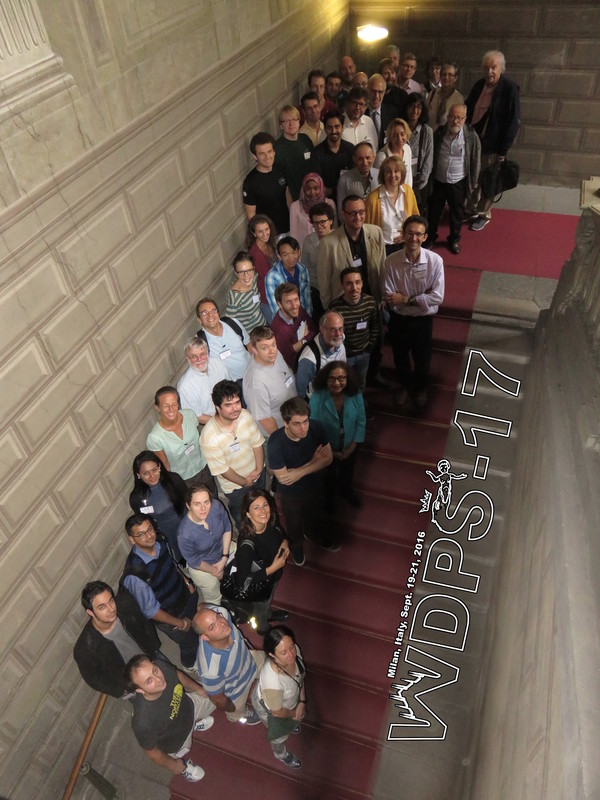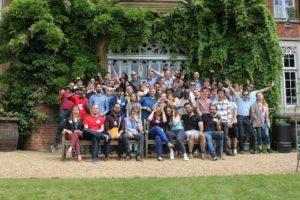Organizers:
Thomas Heine, University of Leipzig (Germany)
Yandong Ma, Jacobs University Bremen (Germany)
Tim Wehling, University of Bremen (Germany)
Young-Hee Lee (Institute for Basic Science, Suwon (Korea)
Thomas Frauenheim, University of Bremen (Germany)
Location:
University of Bremen, Germany, 27th June until 1st of July 2016
I. Summary
The workshop “Tailor-made 2D-materials and functional devices” was held at the University of Bremen, Germany from June 27th to 1st 2016. In total, 76 participants from Belgium, Brazil, Finland, Ireland, Luxemburg, The Netherlands, Portugal, Slovenia, Spain, Sweden, Switzerland, Denmark, France, Germany, UK and US attended the workshop.
The programme consisted of 30 invited lectures, one poster session presenting 37 posters and many events (reception / conference dinner) to allow for informal exchange. The lectures were scheduled to last 40 min, including 5-10 min discussion time. In addition to this extended time for discussion, the chairpersons were instructed to introduce the subject of the session and to actively participate in the discussion. This “Gordon-conference-style” was essential to guarantee a vivid discussion. The organizers ensured that well-established scientists acted as invited speakers and chairpersons.
Concerning the poster session, we accepted only 37 posters to allow for an intense exchange of ideas at each single poster. Here, we encouraged in particular the young scientists to ask questions. The participation of PhD students was supported by partly covering local accommodation costs.
Due to the compact organization and accommodation in one hotel only all participants stayed together for the whole time of the conference, which additionally enforced the scientific discussion which was mandatory since scientists from various separated fields, i.e. advanced quantum chemistry, many-body perturbation theory, DFT and beyond, scanning probe techniques, optical spectroscopy, ARPES, etc. were attending the meeting to merge ideas and formulate a common goal for future directions and collaborations of theory groups with experimental groups.
Financial support from the DFG, Psi-k Network, and the German CECAM node multi-scale modelling from first principles, cecam-mm1p.de and the University Bremen is gratefully acknowledged.




